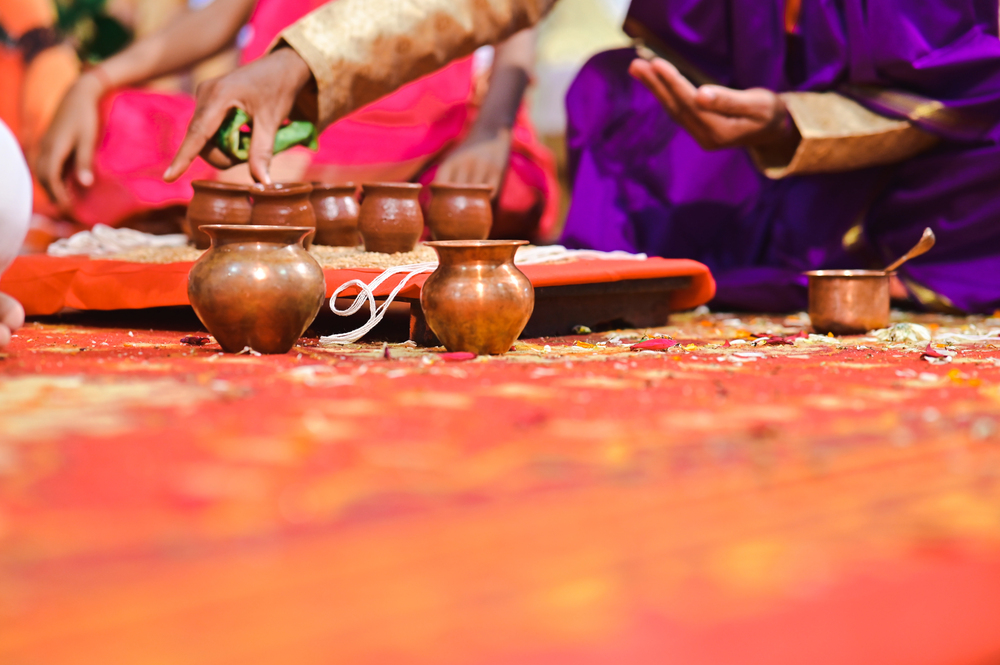Indian hospitality isn’t just about being polite—it’s a deeply rooted cultural tradition that treats guests as almost divine beings. The ancient Sanskrit phrase ‘Atithi Devo Bhava’ literally translates to ‘the guest is God’, and this philosophy shapes every interaction between hosts and visitors across the subcontinent. Understanding these unwritten rules can transform your experience from awkward tourist moments to genuine cultural connections.
Whether you’re visiting a bustling city apartment or a rural village home, these customs remain remarkably consistent across India’s diverse regions. Here are 15 essential hospitality rules that will help you navigate Indian homes with grace and respect.
Remove Your Shoes

Taking off your shoes before entering someone’s home is non-negotiable in Indian culture. Most Indian families consider the home’s interior a sacred space, and outdoor footwear carries dirt, negative energy, and germs that shouldn’t cross the threshold. You’ll usually see a collection of sandals and shoes near the entrance—that’s your cue to slip yours off too. Don’t worry about your socks or bare feet; hosts expect this and often provide house slippers for guests.
Accept Food and Drinks

Refusing food or beverages in an Indian home can genuinely hurt your host’s feelings. Even if you’ve just eaten a five-course meal, accepting at least a small portion shows respect for their hospitality. Indian hosts often prepare special dishes when they know guests are coming, and turning down their offerings feels like rejecting their care and effort. If you have dietary restrictions, explain them politely—most hosts will happily accommodate you with alternatives rather than see you go hungry.
Let Elders Eat First

Age hierarchy plays a significant role in Indian dining customs, and guests should wait for older family members to begin eating before starting their own meal. This practice shows respect for wisdom and experience, values deeply embedded in Indian society. You might notice younger family members serving elders first or waiting patiently with their hands folded. Follow their lead and don’t feel awkward about the wait—it’s a beautiful tradition that honors the family’s senior members.
Use Your Right Hand

Indians traditionally eat with their hands, and using your right hand is crucial since the left hand is considered unclean. This custom stems from practical hygiene reasons, as the left hand was historically used for personal cleaning. Even if you’re left-handed, try to use your right hand for eating, touching food, or passing items to others. If you absolutely must use your left hand due to injury or disability, most hosts will understand, but it’s worth mentioning beforehand.
Finish Everything on Your Plate

Leaving food on your plate in India suggests either the food wasn’t good or you didn’t enjoy the meal—both are serious insults to your host. Indian mothers and grandmothers take particular pride in feeding people well, and a clean plate signals satisfaction and appreciation. If you’re genuinely full, it’s better to take smaller portions initially than to waste food. Many Indian families also believe that wasting food brings bad luck, making this rule even more important.
Compliment the Cook

Praising the food enthusiastically isn’t just polite—it’s expected and deeply appreciated. Indian cooking involves complex spice blends and time-intensive preparation, so acknowledging this effort means everything to your host. Don’t just say, “It’s good”; be specific about flavors you enjoyed or ask about ingredients. This shows genuine interest in their culture and cooking skills, often leading to recipe sharing and cooking demonstrations.
Dress Modestly

Conservative clothing shows respect for your host’s values and the sanctity of their home. This means covering your shoulders, avoiding short skirts or shorts, and choosing clothes that aren’t too tight or revealing. Indian families often have multiple generations living together, and modest dress ensures everyone feels comfortable around you. Think of it like dressing for a nice dinner at your grandparents’ house—respectful but not necessarily formal.
Greet Everyone Properly

Learning basic Hindi greetings like ‘Namaste’ or regional equivalents shows effort and respect for local culture. The traditional greeting involves pressing your palms together at chest level and bowing slightly while saying the greeting. Don’t worry about perfect pronunciation; your attempt to speak their language will be warmly received. Make sure to greet the eldest family members first, then work your way down by age—this shows you understand and respect their social hierarchy.
Bring a Small Gift

Arriving empty-handed to an Indian home is considered impolite, even for casual visits. Traditional gifts include sweets, fruits, flowers, or small items from your home country if you’re visiting from abroad. Avoid leather products, alcohol (unless you know the family drinks), or overly expensive gifts that might embarrass your host. The gift represents your gratitude for their hospitality, not its monetary value, so even a box of cookies from a local bakery works perfectly.
Respect Religious Spaces

Most Indian homes have a dedicated prayer area or shrine, and these spaces require special reverence. Never point your feet toward religious images, touch sacred items without permission, or enter these areas wearing shoes. If your host invites you to participate in prayers or ceremonies, feel honored—it means they consider you part of their extended family. Simply observe and follow their lead; participation is welcomed but never mandatory.
Wait to Be Seated

Indians often have specific seating arrangements based on age, gender, and social relationships, so let your host guide you to your spot. The place of honor usually faces the family’s religious corner or offers the best view of the room. Don’t grab the first empty chair you see, as it might belong to an elder or have cultural significance. This patience shows you respect their household dynamics and aren’t trying to impose your own preferences.
Accept Second Helpings

Indian hosts express love through food, and refusing second helpings can seem like rejecting their affection. Even if you’re completely full, accepting a small additional portion shows appreciation for their cooking and hospitality. The phrase ‘thoda aur’ (a little more) will follow you throughout the meal, and gentle insistence on your part that you’re satisfied will eventually be accepted. Think of it as a friendly food negotiation rather than pressure.
Don’t Touch Anyone’s Head

The head is considered the most sacred part of the body in Indian culture, and touching someone’s head—even playfully—is deeply inappropriate. This includes children, despite Western customs of ruffling kids’ hair as a sign of affection. If you want to show fondness for a child, a gentle pat on the shoulder or back works much better. Even accidentally bumping someone’s head requires an immediate apology and sometimes a brief prayer for forgiveness.
Help with Cleanup

Offering to help clear dishes or clean up after meals shows good manners and consideration for your host’s work. While many Indian hosts will initially refuse your help, gently insisting demonstrates that you don’t take their service for granted. Don’t be surprised if older women in the family firmly redirect you away from kitchen duties—accepting their care is sometimes more important than helping. The offer itself communicates respect and gratitude.
Express Gratitude Before Leaving

Thank your hosts multiple times and with genuine enthusiasm before departing—Indian hospitality deserves abundant appreciation. Don’t just thank them once at the door; express gratitude for specific things like the delicious food, warm welcome, or beautiful home. Many Indian families will also pack leftover food for you to take home, which is another expression of their care. Accepting these leftovers graciously shows you value their continued nurturing even after you leave.
When Ancient Traditions Meet Modern Homes

These hospitality traditions have survived centuries of change because they create genuine human connections in our increasingly digital world. While modern Indian families might order takeout instead of cooking elaborate meals, the underlying principles of respect, gratitude, and care remain unchanged. Understanding these customs doesn’t just make you a better guest—it offers a window into a culture that has elevated hospitality to an art form. The next time someone invites you into their Indian home, you’ll know exactly how to honor both their traditions and their generous spirit.
More from Travel Pug

- 20 Best Beach Towns in the Carolinas
- 13 Destinations Where Tourists Regularly Regret Their Trip
- 20 Things You Actually Get in First Class
- 20 Small Airports With Aviation Museums
- 20 Places in the U.S. That Are Perfect for a Reset Trip
Like Travel Pug’s content? Follow us on MSN.
